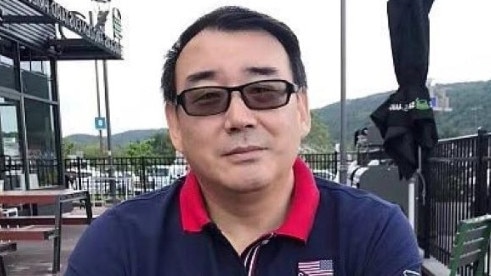No interference in Yang Hengjun case, says Marise Payne
Foreign Minister Marise Payne has firmly rejected China’s claim Australia interfered in the shadowy espionage case of Australian Yang Hengjun.

Foreign Minister Marise Payne has firmly rejected China’s claim Australia interfered in the shadowy espionage case of Australian Yang Hengjun.
Australian consular officials were able to meet with Dr Yang on Friday, the day after Australian ambassador Graham Fletcher was denied entry to the one-day trial in Beijing.
Hours after the supervised consular visit, Senator Payne said the Australian government remained in the dark about what Dr Yang had been tried for more than 25 months after he was nabbed by China’s secret police at Guangzhou airport.
“Given our enduring concerns about this case, including the lack of detail as to the charges and the investigation made available to Dr Yang and to Australia, we consider this to be an instance of arbitrary detention of an Australian citizen,” she said in a statement.
“Since Dr Yang’s detention in January 2019, the Australian Government has stated a number of times the fundamental importance of procedural fairness, basic standards of justice and international legal obligations,” she said.
“These are well-accepted principles of legal process. Seeking their observation does not amount to interference in the Chinese legal system.”
It is not clear when the sentence will be announced. People familiar with the case judge it could range from three years in prison to the death sentence.
The 56-year-old – who maintained his innocence at court on Thursday – is best known as a pro-democracy commentator, but previously worked for China’s Ministry of State Security, the agency that detained him.
Since his detention, Dr Yang has not seen or spoken to his wife Yuan Xiaoliang, who was also denied permission by Chinese authorities to attend her husband’s trial.
China has not removed the exit ban that was imposed on her after Dr Yang’s detention.
The consular meeting on Friday allowed Australia’s diplomats to assess the health of Dr Yang, who attended his high profile trial in full personal protective equipment, including a PPE suit, goggles and a face mask.
Despite China having the epidemic under control, security officers at the heavily policed Beijing Number 2 Intermediate People’s Court cited pandemic precautions as they told Australia’s ambassador that he was not allowed entry.
China’s foreign ministry later said national security concerns were the reason Ambassador Fletcher and his diplomatic colleagues were not allowed at the court.
“Chinese law stipulates that the cases involving national secrets shall not be tried in an open court or sit in by anyone. This is a common practice in many countries,” said foreign ministry spokesman Zhao Lijian.
“China firmly opposes Australia’s unjustifiable obstruction in China’s handling of the case in accordance with law, and its gross interference in China’s judicial sovereignty,” he said.
“China has lodged its solemn representation to the Australian side.”




To join the conversation, please log in. Don't have an account? Register
Join the conversation, you are commenting as Logout